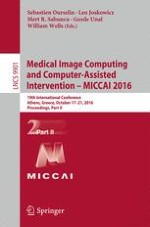2016 | OriginalPaper | Chapter
High-Throughput Glomeruli Analysis of \(\mu \)CT Kidney Images Using Tree Priors and Scalable Sparse Computation
Authors : Carlos Correa Shokiche, Philipp Baumann, Ruslan Hlushchuk, Valentin Djonov, Mauricio Reyes
Published in: Medical Image Computing and Computer-Assisted Intervention – MICCAI 2016
Publisher: Springer International Publishing
Activate our intelligent search to find suitable subject content or patents.
Select sections of text to find matching patents with Artificial Intelligence. powered by
Select sections of text to find additional relevant content using AI-assisted search. powered by
